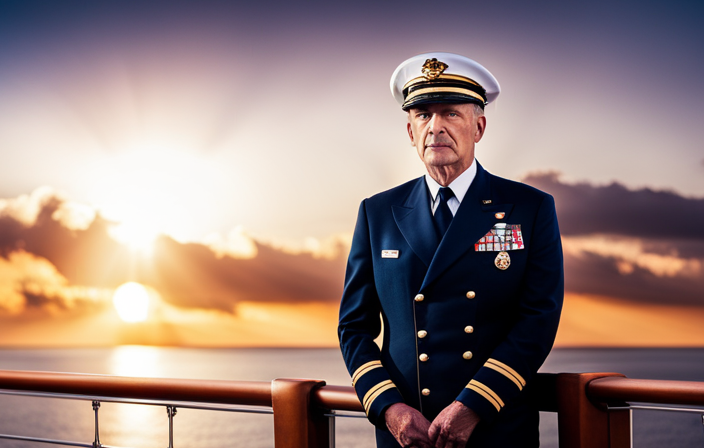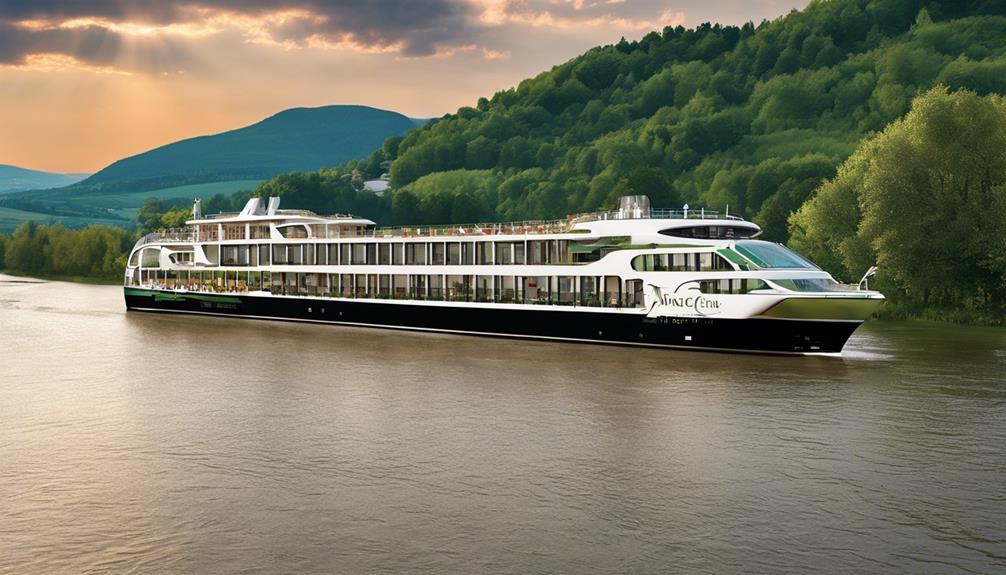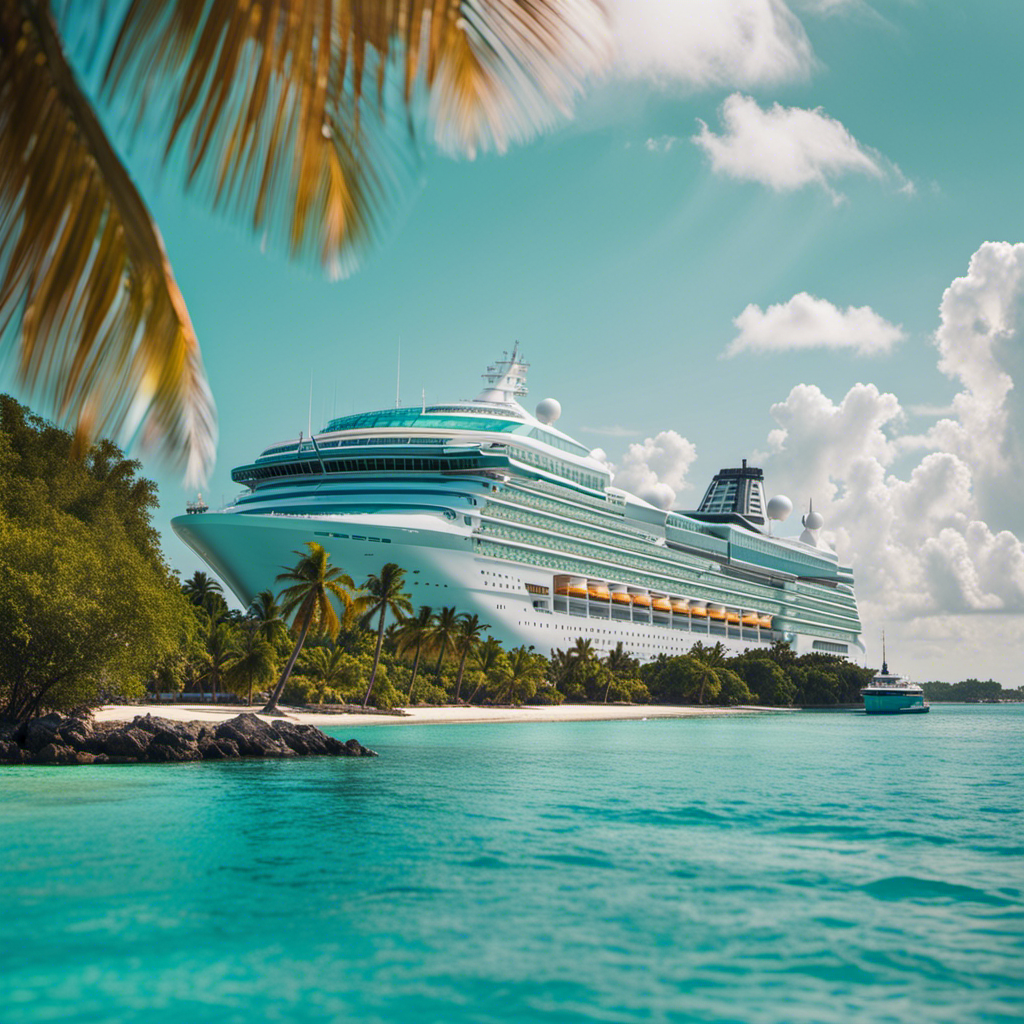As the sun descends beneath the horizon and the day comes to a close, a gentle breeze caresses my cheek as the sound of the sea waves crashing against the boat’s side envelops me. The allure of embarking on a cruise vacation is undeniable. Yet, in these unpredictable times, this experience has undergone a transformation.
So, what are the new rules for cruise ships? Let me be your guide through the maze of health and safety protocols, vaccination requirements, booking and cancellation policies, and more. The world of cruising has adapted to ensure your well-being while still offering the excitement and entertainment you crave.
From onboard activities to shore excursions, there are guidelines in place to ensure a seamless and enjoyable experience. Travel insurance requirements and pre-boarding protocols have also become essential aspects of your journey.
Stay informed about the latest updates and be prepared to take on your responsibilities as a passenger. Join me as we navigate the new rules for cruise ships and embark on a voyage of discovery like no other.
Key Takeaways
- Pre-boarding requirements: Necessary documentation (valid passport, visa, medical records/vaccination certificates) and testing/health screening procedures (temperature checks, COVID-19 tests) must be followed.
- Documentation requirements: Passengers must ensure they have a valid passport, visa or travel permits, and travel insurance that covers medical emergencies and trip cancellations.
- Health screening procedures: Passengers will undergo COVID-19 testing (PCR or rapid antigen tests), temperature checks, and health questionnaires to ensure a safe environment on the ship.
- Smooth check-in process: Passengers should arrive at the port on time, have necessary documents readily available, follow instructions for health screenings, maintain social distancing, wear face masks, and be patient and understanding of safety measures.
Health and Safety Protocols
Are you ready to set sail on a cruise ship and experience the new and improved health and safety protocols? Cruise ship dining has undergone significant changes to prioritize the safety and well-being of passengers.
Buffets, once a staple on cruise ships, have been replaced with individually portioned meals served by crew members. This ensures that there is no shared contact with utensils or food. Additionally, dining areas are regularly sanitized and disinfected to maintain high standards of cleanliness.
Sanitation measures have been intensified throughout the ship, with hand sanitizing stations conveniently placed in common areas and crew members reminding passengers to practice good hygiene. These measures aim to reduce the risk of any potential outbreaks onboard.
As we transition to the next section about vaccination requirements, it’s important to note that these protocols work in conjunction with other safety measures to create a safe and enjoyable cruise experience.
Vaccination Requirements
Passengers must have their vaccination passports ready to set sail on the ocean voyage of a lifetime. In response to the ongoing pandemic, cruise lines have implemented mandatory vaccinations for all passengers. This requirement ensures the safety and well-being of both passengers and crew members onboard. A vaccine passport acts as proof of vaccination, allowing passengers to board the ship and enjoy their vacation with peace of mind. To emphasize the importance of vaccination, consider the following table:
| Vaccination Requirements |
|---|
| 1. COVID-19 vaccine |
| 2. Booster shot |
| 3. Valid vaccine passport |
| 4. Negative test result |
| 5. Health declaration |
By adhering to these requirements, cruise lines are taking proactive measures to prevent the spread of the virus onboard. Now, let’s move on to the next topic of booking and cancellation policies, where we will explore the flexibility provided to passengers in planning their cruise vacations.
Booking and Cancellation Policies
Navigating the waters of vacation planning can be a breeze with the flexibility offered by cruise lines’ booking and cancellation policies. When it comes to booking options, cruise lines now provide a range of choices to suit every traveler’s needs.
From flexible fares that allow changes and cancellations up to a certain date, to non-refundable options that offer lower prices, there is something for everyone. Additionally, many cruise lines have implemented enhanced refund policies in response to the current situation, allowing guests to cancel their bookings and receive a full refund or future cruise credit. These policies provide peace of mind and confidence when making travel plans.
As we move into the next section about onboard entertainment and activities, it’s important to note that cruise lines have also adapted their offerings to ensure a safe and enjoyable experience for all passengers.
Onboard Entertainment and Activities
With a wide array of options, cruise lines offer an abundance of exciting and enjoyable onboard entertainment and activities. Passengers can indulge in a variety of onboard dining options, ranging from elegant fine dining restaurants to casual buffet-style eateries. Whether you have a craving for international cuisine or prefer to sample local specialties, there’s something to suit every palate.
Moreover, cruise ships are renowned for their live entertainment shows, featuring Broadway-style productions, comedy acts, and live music performances. From dazzling dance numbers to mesmerizing acrobatics, these shows are sure to captivate and entertain guests of all ages. So, sit back, relax, and prepare to be dazzled by the talent showcased onboard.
Moving on to the next section about excursion guidelines, it’s important to plan ahead and make the most of your time ashore.
Excursion Guidelines
Excursions are an absolute must for travelers looking to embark on unforgettable adventures and create memories that will last a lifetime. Cruise ships offer a wide range of excursion options to cater to different interests and preferences. From exploring ancient ruins to snorkeling in crystal-clear waters, there is something for everyone.
However, safety is of utmost importance when it comes to excursions. Cruise lines have implemented strict excursion safety guidelines to ensure passengers’ well-being. These may include mandatory safety briefings, adherence to local regulations, and thorough vetting of excursion operators. By following these guidelines, cruise ships aim to provide a secure and enjoyable experience for all passengers.
As we move on to the next section about crew and staff protocols, it’s important to remember that safety remains a top priority throughout the entire cruise experience.
Crew and Staff Protocols
Get ready to experience a whole new level of service as the crew and staff on board go above and beyond to ensure your comfort and satisfaction. Cruise ship companies have implemented rigorous crew training programs to ensure that every member of the staff is well-equipped to handle any situation that may arise.
From providing exceptional customer service to ensuring the cleanliness of the ship, the crew is dedicated to making your cruise experience unforgettable. Additionally, cruise ships now have enhanced medical facilities and protocols in place to ensure the health and safety of all passengers and crew members. These medical facilities are equipped with state-of-the-art equipment and staffed by highly trained medical professionals.
As we move on to the next section about travel insurance requirements, it’s important to note the comprehensive measures in place to prioritize your well-being.
Travel Insurance Requirements
Embarking on a cruise adventure is like setting sail on a journey of peace of mind, as travel insurance requirements ensure that you’re protected from unforeseen circumstances. When it comes to travel insurance coverage for cruise ships, there are a few key points to consider:
-
Medical Coverage: In case of illness or injury while on board, travel insurance providers offer medical coverage to handle any necessary treatments and medical evacuation if needed.
-
Trip Cancellation: If unexpected events force you to cancel your cruise, travel insurance can provide reimbursement for non-refundable expenses like cruise fares and pre-paid excursions.
-
Lost or Delayed Baggage: Travel insurance can offer coverage for lost or delayed baggage, providing compensation for essential items until your belongings are returned.
-
Emergency Assistance: In the event of a crisis or emergency, travel insurance providers offer 24/7 assistance, helping you navigate medical emergencies, travel delays, and other unforeseen situations.
With travel insurance coverage, you can embark on your cruise knowing that you have financial protection and support if the unexpected occurs.
Moving forward, let’s explore the pre-boarding requirements for a smooth sailing experience.
Pre-boarding Requirements
When it comes to pre-boarding requirements for a cruise ship, there are a few key points to keep in mind.
First and foremost, make sure you have all the necessary documentation and paperwork in order, including your passport, visa (if required), and any medical records or vaccination certificates.
Additionally, be prepared for testing and health screening procedures, such as temperature checks and COVID-19 tests.
Lastly, be sure to arrive on time and follow the check-in process as instructed by the cruise line to ensure a smooth and efficient boarding experience.
Documentation and paperwork
Don’t forget to double-check your documentation and paperwork before boarding the cruise ship to ensure a smooth and hassle-free experience. Here are some important things to keep in mind regarding documentation and paperwork requirements:
-
Make sure to bring a valid passport or other accepted identification documents.
-
Check if you need to obtain a visa or any specific travel permits for the cruise.
-
Ensure that your travel insurance is up to date and covers any medical emergencies or trip cancellations.
-
Complete any required health questionnaires or forms accurately and honestly.
-
Familiarize yourself with any additional documentation requirements specific to the cruise line or destination.
Taking the time to review and organize your documentation ahead of time will help avoid any last-minute complications or delays.
Once you have everything in order, you’ll be ready to proceed with the next step, which involves testing and health screening procedures.
Testing and health screening procedures
Now that we’ve covered the documentation and paperwork required for cruise ships, let’s dive into the next important aspect: testing and health screening procedures. These measures are crucial to ensure the safety and well-being of all passengers and crew members on board.
Prior to embarkation, all passengers will be required to undergo COVID-19 testing. This may involve a PCR test or a rapid antigen test, depending on the cruise line’s protocols. Additionally, health screening procedures will be implemented, including temperature checks and health questionnaires. These measures aim to identify any potential health risks and prevent the spread of infectious diseases on the ship.
It is essential to comply with these procedures to maintain a safe and healthy environment for everyone on board. Moving forward, let’s explore the next aspect of cruise ship protocols: the arrival time and check-in process.
Arrival time and check-in process
Upon your arrival, prepare for a seamless check-in process that’ll have you ready to embark on your unforgettable voyage in no time. Here are some key points to keep in mind regarding your arrival time and the check-in process:
-
Arrive at the port at your designated time to ensure a smooth and efficient check-in.
-
Have all necessary documents, such as your passport and health declaration, readily available to expedite the process.
-
Follow the instructions provided by the cruise line regarding health screenings and temperature checks.
-
Maintain social distancing and wear a face mask throughout the check-in process.
-
Be patient and understanding as there may be additional safety measures in place to ensure the well-being of all passengers.
As you complete the check-in process, you can look forward to receiving regular communication and updates throughout your cruise journey. These updates will keep you informed about any changes or important information, ensuring a stress-free and enjoyable experience onboard.
Communication and Updates
Stay informed and connected while on a cruise ship by taking advantage of the latest communication and updates available to you. Cruise lines have implemented various communication methods to ensure that passengers receive timely notifications and stay updated on any changes or important information. These methods include announcements over the ship’s public address system, in-cabin televisions with dedicated channels for updates, and the use of mobile apps that provide real-time information and updates. By utilizing these communication channels, passengers can easily stay informed about itinerary changes, onboard activities, and any safety or security updates. It is important for passengers to actively check for updates and stay connected throughout their cruise to ensure a smooth and enjoyable experience. Moving on to passenger responsibilities, it is crucial for each individual to adhere to the rules and guidelines set by the cruise line.
Passenger Responsibilities
Passengers must always follow and abide by the guidelines and regulations set by the cruise line to ensure a safe and enjoyable experience. It is essential for passengers to understand that their behavior directly impacts the safety protocols in place on cruise ships. Following these protocols not only protects themselves but also their fellow passengers and crew members.
It is crucial to listen to and cooperate with the instructions provided by the crew, especially during safety drills and emergencies. Passengers should familiarize themselves with the location of emergency exits, life jackets, and muster stations. They should refrain from engaging in any activities that could jeopardize their safety or the safety of others, such as leaning over railings or climbing on restricted areas.
By adhering to these passenger responsibilities, everyone on board can have a pleasant and secure voyage.
Frequently Asked Questions
Can I bring my own hand sanitizer and disinfectant wipes on board?
Yes, you can bring your own hand sanitizer and disinfectant wipes on board. It is recommended to practice good hand hygiene and bring personal protective equipment to ensure your safety during the cruise.
Are there any restrictions on bringing outside food or beverages on the ship?
There are restrictions on bringing outside food or beverages on the ship. It is important to check with the cruise line for their specific policies regarding food and drink items that are allowed on board.
What are the procedures in place if a passenger tests positive for COVID-19 during the cruise?
If a passenger tests positive for COVID-19 during the cruise, the ship’s procedures for positive cases will be activated. They will be placed in quarantine protocols to prevent the spread of the virus onboard.
Are there any age restrictions for participating in onboard activities and entertainment?
There are age restrictions for certain onboard activities. For example, the rock climbing wall is restricted to participants aged 6 and above. However, there are plenty of other activities available for all age groups to enjoy.
Will there be any limitations on the number of passengers allowed in common areas, such as pools or restaurants, at any given time?
Yes, there will be limitations on the number of passengers allowed in common areas due to social distancing measures. Capacity will be reduced to ensure everyone’s safety and well-being onboard the cruise ship.
Do the New Rules for Cruise Ships Address the Issue of Sewage Disposal?
The new rules for cruise ships aim to improve sewage treatment on cruise ships to address environmental concerns. By implementing stricter regulations and modernizing sewage treatment systems, the industry is making efforts to minimize the impact of wastewater discharge on marine ecosystems.
Conclusion
In conclusion, the new rules for cruise ships prioritize health and safety protocols, vaccination requirements, and booking flexibility.
Passengers can enjoy a wide range of onboard entertainment and activities, while adhering to excursion guidelines.
It’s crucial to have travel insurance and meet pre-boarding requirements for a smooth sailing experience.
Communication and updates are essential to stay informed.
Ultimately, passengers have a responsibility to follow the guidelines and ensure a safe and enjoyable cruise journey.
Bon voyage!










